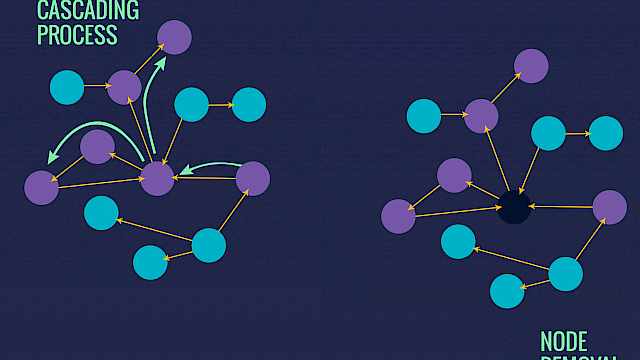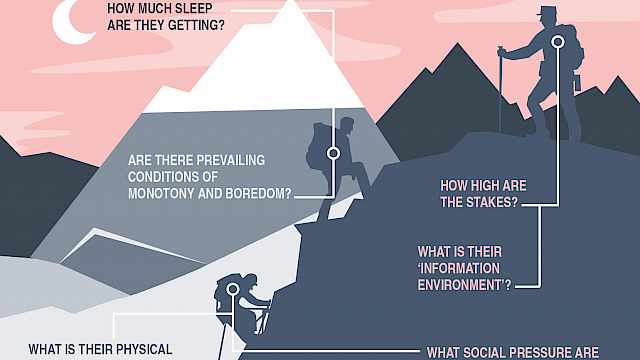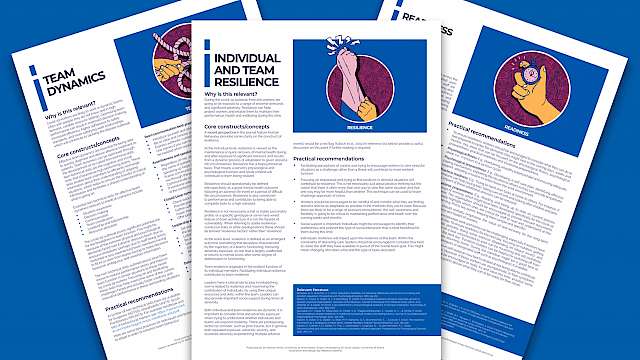Personnel might encounter VUCA environments in remote and low resource areas of operation, like the conditions experienced in mountain or desert environments. They might also be exposed to VUCA conditions when working on the streets of a hostile area in a busy city, or even in a pressured cyber environment. Ultimately, the environments faced by defence and security personnel are demanding because the consequences of poor performance can have significant health and safety and broader strategic and political implications.
We have researched resilient performance in defence and security personnel with funding from the Human and Social Science Research Capability (HSSRC) and Defence Science and Technology Laboratory (DSTL). Our work has focused on bringing definitional clarity and exploring factors that affect whether an individual can perform resiliently under stressful conditions. We are using this information to design measurement tools and training programmes to enhance resilient performance.
Resilient performance
Our work differs from the wider interest in resilience because it is principally focused on the issue of performance. Based on a systematic review of prior research findings, as well as semi-structured interviews with military, intelligence, and police firearms personnel (n = 17), we suggest resilient performance is ‘the maintained or improved execution of competence under situational duress’.
With this definition in mind, we view resilient performance via changes in the competency markers relevant to the work of defence and security. This might include skilled motor performances, physical fitness, persistence and effort, judgement and decision-making, attention and concentration, and communication skills. In our view, resilient performance is observed when personnel maintain or even enhance the required performance in these areas when placed under stress.

Resource and demand processes
With resilient performance markers as outcomes, we can work backwards to examine factors that might affect performance. Proximal to specific performances are situational processes, reflected by in-the-moment psychological, social, and biological factors that determine whether someone is ready to perform or not. In our work, two overarching process dynamics were identified: resources and demands.
Resources include psychosocial elements such as perceptions of autonomy and control, competence and confidence, relatedness and trust, and self-regulation skills.
Demands are the specific situational features or risks that impinge upon in-the-moment performance and might include issues related to the physical environment, as well as sleep deprivation, information uncertainty, complexity, and social tensions.
Importantly for this work, it is the extent to which one perceives sufficient resources to meet or exceed the situational demands that determine whether performance is degraded, maintained, or improved. Greater perceived resources than demands underpin maintained and improved performance (resilient performance), while insufficient resources underpin performance decrements (non-resilient performance). This is in line with a transactional understanding of stress, whereby situations are rendered stressful by how individuals appraise the situation, and their capacity to cope within it (situation x appraisal = stress response inferred by biopsychosocial state).
Enablers and disablers
Zooming out from the situational level, various resilient performance enablers and disablers were identified in the literature and further explored in our end-user interviews. Based on current findings, we suggest that enablers and disablers are relatively stable global-contextual factors that influence performance by either bolstering or diminishing situational resources and demands.
Relatively high scores on trait-like factors such as the Big Five personality domains of conscientiousness, agreeableness, and openness, and high scores on adaptability, mental toughness, and hardiness are some of the performance enablers identified by the interviewees. Aspects such as intelligence and expertise were also pinpointed as contributing to performance.
Excessively high scores on certain variables, like mental toughness, might result in those factors becoming performance disablers.
There are some caveats, in that excessively high scores on certain variables, like mental toughness, might result in those factors becoming performance disablers. Other variables such as being ego-driven, arrogant, and overly neurotic were considered as disablers to performance.
While enablers and disablers are typically considered stable, practitioners we interviewed discussed how, in themselves and others, they have seen these factors change over time. This seemed especially so in the case of being exposed to formative and very challenging experiences, such as a demanding selection and training course or a stressful and potentially traumatic event.
New insights
In contrast to polarising trait-like or process models of resilience, our findings suggest various global-contextual and situational variables are networked and will interact to dictate whether someone can perform resiliently or not. For example, enablers are predicted to impact resilient performance via their bolstering of situational resources. This is different to previous conceptualisations and moves beyond a view of resilience as either a disposition or something driven entirely by context.
With this suggestion in mind, we are cognizant of avoiding a ‘fallacy of uniform efficacy’, which is the assumption that more of something is always better. For instance, our interviewees highlighted that being too high on factors such as mental toughness or self-confidence might turn these commonly viewed performance enablers into disablers. In future work, we plan to examine these interactions to identify optimal levels and combinations of enabling variables.
Critically, we also acknowledge the importance of time. During our interviews, thinking about resilient performance over longer periods was repeatedly emphasised. This affirms the notion of consistency and the ability to execute relevant performance markers, or competencies, as and when called upon, over weeks, months, and years. This extended view is more robust to one-off performance breakdowns, which are likely inevitable, but that when viewed in isolation, might be used to label someone as ‘not resilient’. A longer-term perspective also reinforces the dynamic temporal aspect of what it means to perform resiliently.
Promoting resilient performance
Based on our suggestions, we are currently designing a battery of measures to assess global-contextual enablers (and disablers) and situational resource and demand processes that are proposed to underpin resilient performance. These measures will integrate psychological, social, and biological components. Initially, we will examine the predictive validity of the measured enablers, disablers, and processes on resilient performance markers assessed during ecologically valid stress tasks.
At the same time, we are developing a resilient performance training programme for defence and security personnel that draws upon prior work to offer novel blended learning on the topic. If and when validated, these parallel activities will provide the tools to both monitor and, through well-targeted interventions at both the global-contextual and situational level, enhance and sustain the resilient performance of defence and security personnel.
Conclusion
In a 2016 speech, Sir Alex Younger, former Chief of the Secret Intelligence Service, said that “We can put our officers where they need to be, in some of the most challenging locations imaginable, with the support they need to stay safe and the guidance and training required to navigate complex and ethically hazardous environments”. Our work on resilient performance is designed to augment and extend the type of capability discussed by Younger. Ultimately, developing a scientific understanding that can inform evidence-based measurement tools and training to optimise resilient performance contributes to managing risk and empowers defence and security personnel to function effectively in the demanding VUCA environments they are tasked to operate in.
Read more
This work was produced with input from the wider project team, including Professor Marc Jones, Dr Elizabeth Braithwaite, Dr Martin Turner (Manchester Metropolitan University), Andy McCann (DNA Definite), Danielle Lefley-Burns (Manchester Metropolitan University), Dr Martin Jones and Dr Leonie Webster (DSTL).
Copyright Information
As part of CREST’s commitment to open access research, this text is available under a Creative Commons BY-NC-SA 4.0 licence. Please refer to our Copyright page for full details.
IMAGE CREDITS: Chanoom / AdobeStock.com







